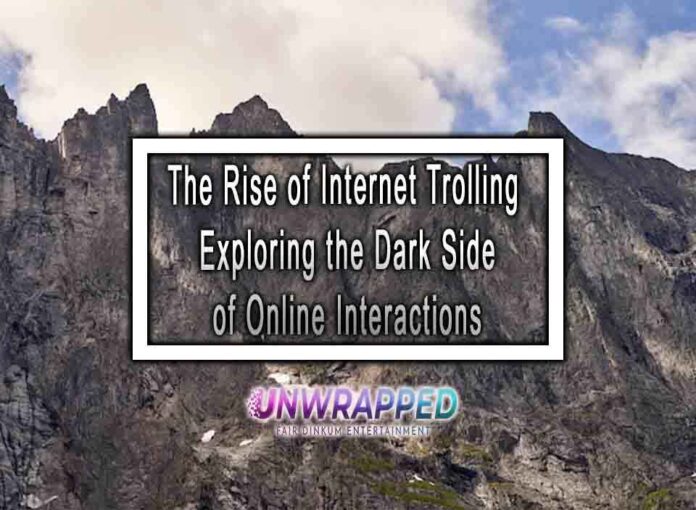The rise of internet trolling represents a dark side of online interactions and has become a prevalent and concerning phenomenon in the digital age. Internet trolling involves individuals who engage in disruptive, harmful, or offensive behaviors on the internet, often with the intention of provoking emotional reactions in others. Here’s an exploration of the rise of internet trolling and its impact:
1. Early Origins:
- Trolling, in the context of online behavior, traces its origins to the early days of internet forums and bulletin board systems (BBS). Initially, it referred to intentionally disruptive or provocative posting to elicit strong reactions.
2. Anonymity and Accessibility:
- The internet’s anonymity and ease of access allow individuals to engage in trolling without revealing their true identities. This anonymity can embolden people to behave in ways they might not in face-to-face interactions.
3. Motivations:
- Trolls often have varied motivations, which may include a desire for attention, amusement at others’ expense, ideological beliefs, or simply the thrill of causing disruption. Trolling may also be driven by a need for power and control.
4. Manifestations:
- can manifest in different ways, such as offensive comments, hate speech, personal attacks, harassment, spreading false information (disinformation), and even cyberbullying. It can occur on social media, online forums, comment sections, and other digital platforms.

5. Online Harassment:
- Trolling frequently escalates into online harassment. Victims of trolling and harassment may experience emotional distress, fear, and even psychological harm.
6. Impact on Online Discourse:
- Internet trolling can have a detrimental effect on online discourse, stifling constructive conversations and polarizing online communities. It can make online spaces less welcoming and inclusive.
7. Countermeasures:
- Social media platforms and websites have implemented various strategies to combat trolling and harassment, such as content moderation, reporting systems, and user bans. However, the effectiveness of these measures varies.
8. Legal and Ethical Issues:
- The rise of trolling has led to legal and ethical debates surrounding issues like freedom of speech versus online harassment. Finding the right balance between protecting free expression and preventing harm remains a challenge.
9. Societal Awareness:
- There is a growing awareness of the negative impact of trolling on individuals and online communities. Organizations and individuals are working to raise awareness and promote healthier online interactions.
10. Online Culture:
- The rise of internet trolling has also influenced online culture, giving rise to internet memes, inside jokes, and a sense of collective identity among online communities.
Internet trolling, while often seen as a negative aspect of online culture, has prompted discussions about online behavior, digital etiquette, and the responsibilities of both users and platform providers. Addressing this issue requires a combination of awareness, education, moderation, and, in some cases, legal measures to ensure a safer and more respectful online environment.












